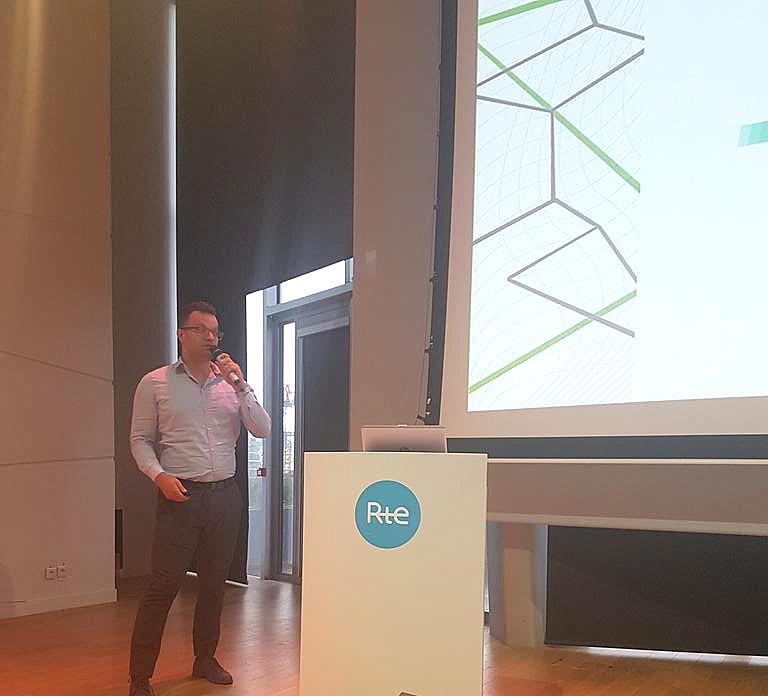Ahmed Zama honored
with the IEEE “Doctorate Laureate” for his thesis work
with the IEEE “Doctorate Laureate” for his thesis work

Every year the French chapter of IEEE Power & Energy Society (PES), in collaboration with SEE (Society of Electricity, Electronics and Information and Communication Technologies), recognises outstanding PhD theses and hands out the “outstanding engineer of the year” prize at an annual evening ceremony. This Wednesday the 9th of October, Ahmed Zama was honoured with the IEEE “Doctorate Award” for his thesis work on “Modeling and Control of Modular Multilevel Converters (MMCs) for HVDC applications”.
“I’m really happy! I was thrilled when I received the news,” says Ahmed Zama, who presented his thesis in 2017. “This award undoubtedly lends credibility to my work.” Ahmed Zama worked for three years at SuperGrid Institute in collaboration with the G2Elab (Grenoble Electrical Engineering Laboratory), developing his thesis on the modelling and control of modular multi-level converters (MMCs) which are key elements of HVDC networks.
“I think the fact that my thesis was not just theoretical worked to my advantage. There was a practical side to it too, everything that was developed in the thesis (MMC modelling and control) was then verified in SuperGrid Institute’s real-time simulation platform. Moreover, MMCs are a key topic in today’s research which also gave a competitive edge to my thesis.”
It is also important to mention that three patents were filed during this research work with SuperGrid Institute. In addition, Ahmed Zama’s work was mentioned in two scientific journal articles and a third is to be published soon.
The award ceremony took place at RTE‘s premises in Paris (the French transmission system operator). Hubert de la Grandière, CEO of SuperGrid Institute, introduced the thesis context and Ahmed Zama then went on to present the results of his work to the audience.
Congratulations to Ahmed Zama for this well-deserved recognition of his work!
Having completed his thesis Ahmed Zama is currently continuing his work on the subject of MMCs at SuperGrid Institute. He’s responsibilities include managing the PHIL real time simulation platform in addition to carrying out other applied research.


